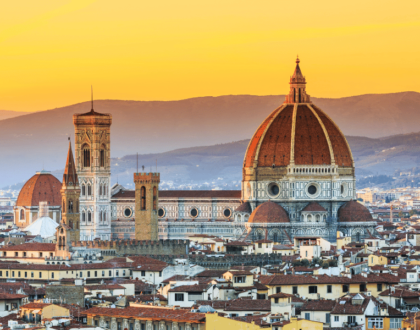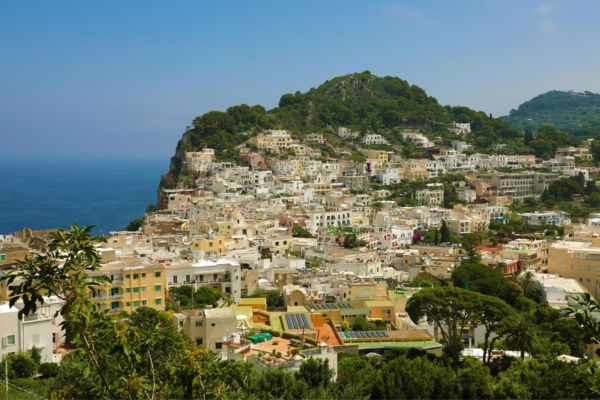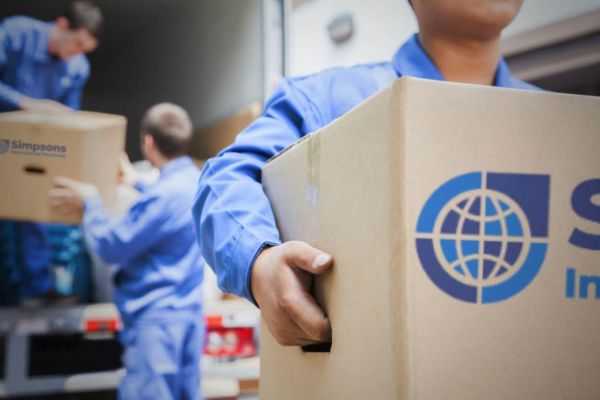Moving to Italy Checklist – Your Essential Guide

by Hayley
Are you planning a move from the UK to Italy? Our comprehensive guide offers a detailed checklist to assist you in every stage of your relocation, from securing your visa to settling into your new Italian home. With our expert tips and insights, you can ensure a smooth and efficient transition.
A successful move to Italy begins with thorough planning. Researching cities, estimating moving costs, and selecting a reputable moving company are vital steps to ease your journey. Our guide covers these aspects, helping you make informed decisions and avoid common pitfalls.
Navigating post-Brexit visa and residence permit requirements is crucial for UK citizens. Our guide provides up-to-date information to help you secure legal residency in Italy. Additionally, finding accommodation in Italy can be challenging, but we offer strategies for temporary housing and tips for working with real estate agents to navigate the competitive market.
1. Planning Your Move to Italy
Moving to Italy involves meticulous planning and preparation, including a carefully thought out checklist.
Key factors to consider include thorough research, estimating moving costs, and securing a reputable moving company.
A well-structured plan and comprehensive checklist will help you cover all bases, making the process less overwhelming and more manageable.
Research Italian Cities
One of the first major decisions you’ll make is choosing where to live in Italy. Each city offers its unique charm and lifestyle, so it’s essential to match your needs with what each city provides. Popular cities like Rome, Milan, Naples, Turin, and Florence are often top choices for expats. Rome, with its ancient landmarks and high-quality schools, is ideal for families, while Milan is a hub for fashion and business. Smaller towns like Trieste, known for its vibrant cafe culture and excellent seafood, offer a more relaxed pace of life.
Thorough research on neighbourhoods and understanding the local culture will help you find the right fit. Whether you prefer the bustling energy of larger cities or the serene beauty of small towns, Italy has something for everyone.
Utilise online resources, visit expat forums, and perhaps even plan a trip to explore potential places in person before making your final decision.
2. Visa and Residence Permit Requirements
Navigating the visa and residence permit requirements is a critical step in your move to Italy. For UK citizens, post-Brexit regulations necessitate applying for a visa for stays longer than 90 days. Various visa types are available, including work, self-employed, student, family, and retirement visas.
EU citizens have fewer restrictions but still need to follow specific residency procedures. Understanding these legal requirements will ensure a smooth transition to becoming an Italian resident.
Applying for a Visa
UK citizens can stay in Italy for up to 90 days without a visa, but for longer stays, a visa application is required post-Brexit. Different types of visas cater to various needs. For example, retirees can apply for a long-term elective residency visa, while students need an acceptance letter from an academic institution and proof of financial means. Work visa applicants must prepare specific documents, including a visa application, a letter of invitation from their employer, and a copy of the business license.
Gathering all necessary documents and understanding the specific requirements for your visa type is crucial. For detailed information, visit the Italian government’s visa page.
UK citizens in England or Wales should apply at the London Embassy, while those in Scotland or Northern Ireland should apply at the Consulate in Edinburgh.
Registering for Residency
Once you arrive in Italy, registering for residency is a must. Within eight days of arrival, non-EU citizens must collect a residence permit application kit from a local post office and submit it. EU citizens intending to stay longer than three months need to declare their intention at the local police station.
Timely residence registration helps avoid legal issues and establishes your official status as an Italian resident.
Health Insurance Requirements
While the public healthcare system is accessible, having additional coverage can provide better access to medical providers and reduce waiting times. New residents must show proof of coverage when registering with a local doctor.
Researching both public and private options will help you understand what best suits your needs.
3. Finding Accommodation in Italy
Finding accommodation in Italy can be challenging due to higher competition, rising prices, and language barriers.
Whether you choose to rent or buy, familiarising yourself with the local market and seeking assistance from real estate agents or expat groups can ease the process.
Flexibility and thorough research will help you find a suitable home in this beautiful home country.
Temporary Housing Options
Temporary housing solutions are important for those relocating to Italy while searching for permanent accommodation. Serviced apartments are a popular choice as they offer flexibility and convenience.
Short-term rental accommodation provides a comfortable base while you explore long-term housing options.
Long-Term Rentals vs. Buying
Deciding between long-term rentals and buying a property in Italy depends on your long-term plans and financial situation. Renting long-term is common, with lease agreements typically requiring a minimum commitment of three years. House prices in Italy are significantly lower than in some other countries, making buying an attractive option for many.
However, rental costs vary, with more affordable options in smaller towns and rural areas compared to major urban centres.
Working with Real Estate Agents
Working with a real estate agent can significantly simplify the process of finding a home in Italy. Agents offer local expertise and connections, helping you navigate the competitive housing market. Be clear about your requirements and budget to ensure effective communication and a successful outcome.
4. Transporting Belongings
Transporting your belongings to Italy involves careful planning and choosing the right shipping method. Options include shared container services for smaller loads and exclusive containers for larger shipments.
Professional moving services can streamline the process and ensure your belongings arrive safely.
5. Estimate Moving Costs
Accurately estimating moving costs is key to effective budgeting and financial planning. Factors such as the distance, volume of items, and individual needs will influence the overall cost.
Requesting free removal quotes from moving companies will provide a clearer picture of the expenses. Simpsons International Removals will be happy to help with a free estimate and survey for your household removal to Italy from the UK.
Additional costs like accommodation, food, healthcare, and education should also be factored in. Booking a home or video survey can provide a more accurate estimate tailored to your specific requirements.
Choose a Reputable Moving Company
Selecting a reputable moving company is vital for a smooth relocation process. Look for companies with a strong reputation, comprehensive services, and reasonable costs. Accredited companies, such as those with FIDI certification, specialise in international moves and offer services like door-to-door delivery, professional packing, and customs clearance support.
Securing your move date early and ensuring all necessary documents are ready will help avoid last-minute hassles.
Packing Services and Materials
Professional packing services ensure your belongings are securely packed for transit. Using high-quality packing materials, such as double or triple-walled cardboard boxes, bubble wrap, and secure packing tape, can protect your items during the move.
Companies like Simpsons offer bespoke custom wood cases for delicate items, ensuring maximum safety.
Shipping Methods
Various shipping methods are available for transporting belongings to Italy, including air, sea, and road freight. Road transport is the most economical option for larger shipments, while air freight is quicker but more expensive. Container shipping is sometimes used for household goods, offering a balance between cost and delivery time.
Customs Clearance
Shipments to Italy from outside the EU, including the UK post-Brexit, require customs clearance. Proper documentation helps avoid delays and additional charges.
Professional assistance can help navigate the customs process smoothly and efficiently.
6. Financial Preparations
Financial preparations are essential for a successful move to Italy. Budgeting for living expenses, including accommodation, food, healthcare, and education, will help manage your finances and avoid unforeseen costs. Establishing a local bank account is also crucial for simplifying transactions and paying bills.
Opening an Italian Bank Account
Opening a bank account in Italy involves providing a passport, proof of address, a residence card or employment contract, and a tax identification number. Recommended banks for expats include N26, Wise, Intesa Sanpaolo, UniCredit, and Poste Italiane.
Familiarizing yourself with the Italian financial system and understanding how to transfer money internationally will make managing your finances easier.
Managing Finances
Opening a local bank account in Italy facilitates everyday transactions and avoids foreign transaction fees. Italy offers various types of financial institutions, including credit banks, cooperative banks, and cooperative credit banks.
Cost of Living
The cost of living in Italy varies significantly across regions. Urban areas tend to be more expensive than rural locations. On average, rental costs in Italy are about 62.33% less than in the UK, making it an attractive option for expats.
Utility costs are comparable to those in the UK, while grocery prices are approximately 20% more expensive. The average monthly living expenses in Italy amount to approximately $1,565 per person.
7. Employment and Job Search
Securing employment is a crucial aspect of moving to Italy. The average wage in Italy is lower than in the UK, and the unemployment rate is higher than the EU average.
Researching your industry and relevant labour laws before moving is essential. Finding a job before relocating will ensure a smoother transition.
Job Search Resources
Finding a job in Italy can be made easier by utilizing various online job portals and resources. Websites like IndeedTiconsiglio.com, jooble.org, and LinkedIn are excellent starting points for job hunting. Job Meeting is another prominent portal that features an updated database and organizes job fairs.
Speaking Italian can significantly enhance your job prospects, so investing time in language learning will be beneficial.
Work Culture
To thrive in your new job, understanding the Italian work culture is essential. The Italian work environment values formal relationships and strong teamwork. Many companies, particularly family-controlled firms, have a less hierarchical structure.
Embracing these cultural nuances will help you integrate smoothly into your new workplace.
Required Documentation
To work legally in Italy, you will need specific documentation, including a valid visa and a tax identification number, known as ‘codice fiscale’. Depending on your job sector, you may also need professional certifications or fluency in Italian.
Having all the necessary documents will facilitate a seamless start to your employment.
8. Education and Childcare
Education is a fundamental aspect to consider when moving to Italy, especially for families. The education system is mandatory for children aged 6 to 16, with a strong emphasis on secondary schooling and university studies.
Understanding the options available for public and international schools, as well as childcare facilities, helps you make informed decisions for your children’s education.
Public and International Schools
In Italy, you can choose between public and international schools. Major cities like Rome, Milan, and Naples offer a larger selection of schools. Public schools follow a structured system starting with kindergarten at age 3, followed by elementary and secondary schooling.
International schools often provide a more global curriculum, catering to many expat families.
Enrollment Process
Enrolling your children in schools in Italy requires submitting academic transcripts and identification documents and adhering to regional deadlines.
Thorough preparation and understanding of the enrollment process will ensure your children transition smoothly into their new educational environment.
Childcare Facilities
Italy offers various childcare options, including preschools and nurseries, to cater to young children. These facilities provide early education and care, helping your children adapt to their new surroundings while you settle into your new life.
9. Learning Italian and Cultural Integration
Learning Italian and understanding the local culture are pivotal for a successful transition.
Learning the language before moving will ease communication and integration.
Embracing Italian culture and traditions will enrich your experience and help you build meaningful connections.
Language Learning Resources
Language learning apps and local Italian classes can significantly enhance your language skills. Joining language clubs and engaging with these resources will not only improve your Italian but also help you connect with the local community.
Understanding Italian Culture
Understanding local culture includes learning the language and engaging with local traditions and customs. Speaking Italian will make it easier to integrate and participate in community activities, helping you feel more at home.
Building a Community
Building a community in Italy is essential for creating a support network. Participating in local events, sports, and classes helps you meet new people and socialize. Joining social clubs or community gatherings provides opportunities to connect with locals and create lasting friendships.
Engaging in neighbourhood activities will foster a sense of belonging in your new environment.
10. Healthcare System in Italy
Access to healthcare is a crucial aspect of living in Italy, ensuring that residents can receive medical attention when needed. Understanding both public and private health insurance options helps navigate the healthcare system effectively.
Public Healthcare System
Italy’s public healthcare system, Servizio Sanitario Nazionale (SSN), is funded by taxes and managed regionally. Accessing the public healthcare system requires obtaining a National Health Card by completing an application at your local healthcare center.
Many expatriates opt for private cover to reduce waiting times and enhance access to medical services.
Private Health Insurance
Having private health insurance in Italy can provide better access to healthcare providers and higher quality services. While the public system is robust, private insurance can offer quicker medical appointments and more specialized care.
Registering with a Doctor
New immigrants must show proof of insurance coverage to register with healthcare services in Italy. This step ensures you have access to medical care and are officially recognized in the healthcare system.
11. Settling In
Settling into your new life in Italy involves creating a welcoming atmosphere in your new home and establishing a budget for unexpected expenses.
Joining local clubs or activities helps you meet new people and integrate into Italian society.
Registering at the Local Questura
Registering at the local Questura is an important step once you move to Italy. To register, provide proof of residency, such as a rental contract, and be prepared to complete necessary forms and present your documentation at the local registry office and the local police station.
Setting Up Utilities
Setting up utilities in your new home involves checking if they are included in your rental agreement and comparing different providers to find the best deals for electricity and gas. Utility contracts typically require identification and proof of residence.
Getting Around
Understanding local transport options enhances your mobility and convenience in Italy. Great public transport within and between cities, as well as purchasing a regional transport pass, can provide savings for frequent travellers.
Are you looking to move to Italy?
Moving to Italy is an exciting adventure, but it requires careful planning and preparation. From researching the best Italian cities and estimating moving costs to securing the right visa and navigating residence requirements, each step is vital for a seamless transition.
At Simpsons International Removals, we specialise in making your move from the UK to Italy as smooth as possible, offering a full door-to-door service, including professional packing, customs clearance, and delivery.
Whether you have a small move or need full household removals, our experienced team is here to handle everything for you. Embrace the Italian culture, learn the language, and start building your new life with confidence. Ready to begin your journey? Get an online quote today or visit our comprehensive Removals to Italy guide for more information. Buon viaggio!
Recommended Posts

How to Retire in Italy: A Comprehensive Guide for 2025
Tuesday, 23rd September 2025

The Top Benefits of Moving to Italy
Tuesday, 5th August 2025

How to Adapt to Italian Culture: Practical Tips for Success
Wednesday, 25th June 2025







